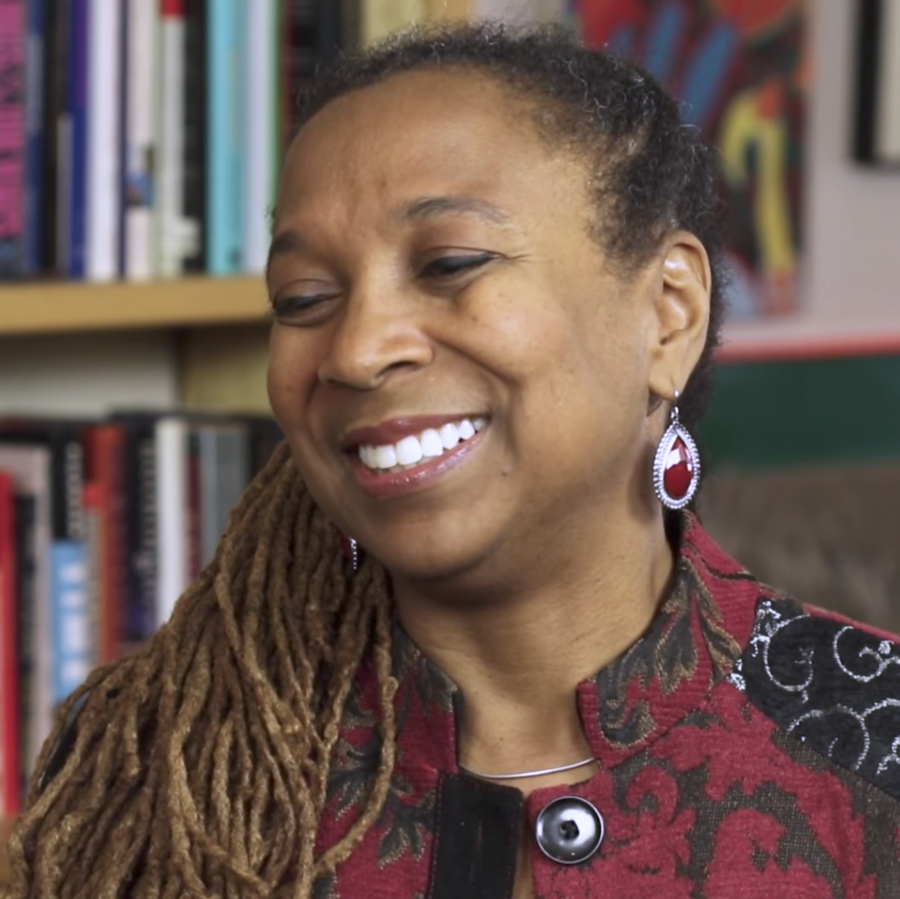Hi everyone! This is Jackie Xu (she/her), Erik Elías Glenn (he/him/él), and Jason Roth (choose your own adventure), coming to you from the Evaluation, Data Integration, and Technical Assistance (EDIT) team at Northwestern University.
During this year’s LGBT TIG week, we reflect on how engaging with Intersectionality improves evaluation, positioning us to expose and ultimately address insidious dynamics of oppression. As evaluators, our professional perspectives are informed by our identities – Black, Chinese, Jewish, gay, Mexican, non-binary, female, male, bisexual – and the power and/or disempowerment associated with them.
Intersectionality, as a framework, encourages us to go further than merely acknowledging our power and privilege. We must identify and explore interlocking systems of power to not only describe how identities intersect, but also how those unique intersections are targeted by unique manifestations of oppression.
“The better we understand how identities and power work together from one context to another, the less likely our movements for change are to fracture.”
– Kimberlé Crenshaw

In 1989, Kimberlé Crenshaw introduced the theory of intersectionality in Demarginalizing the Intersection of Race and Sex. She argues that Black women are often excluded from feminism because of their Blackness, from antiracism because of their woman-ness, and from society because of both. Crenshaw outlines how people’s struggles are rarely singular, but rather composed of many forms of oppression converging together. However, things aren’t as simple as a 1+1 = 2 equation. Black women struggle with more than the sum of racism and misogyny, because they have their own particular experiences as Black women. The fight for justice must acknowledge and respond to these intersections.
Through our Evaluation Center’s community development project, we partner with organizations impacted by intersectional oppression (e.g., Black and Latinx transgender women). By listening deeply to these populations we uncover opportunities for positive change. For example, the Trans Accountability Project has compiled this resource list to address the specific housing, legal, and healthcare needs of transgender people of color.
We invite you to join us in asking: how can our LGBTQ+ Evaluation practices be intersectional?
Hot Tips:
When incorporating intersectionality, remember:
- Understanding somebody’s identities doesn’t mean you understand what it’s like when all of them overlap.
- Oppression is always complex and multifaceted—it’s never as one dimensional as the theories we form.
- The best way to show up for people with intersecting minority identities is by listening to them, then inviting their perspectives into evaluation planning and implementation.
Start with these questions:
- What are the many identities of my evaluand? How might these inform their experiences of the world?
- What questions and conversations will help me to further understand?
When we center people with many marginal identities, we pave the way for liberation for all. In the words of Kimberlé Crenshaw, “When they enter, we all enter.”
The American Evaluation Association is celebrating LGBT TIG Week with our colleagues in the Lesbian, Gay, Bisexual & Transgender Issues Topical Interest Group. The contributions all this week to aea365 come from our LGBT TIG members. Do you have questions, concerns, kudos, or content to extend this aea365 contribution? Please add them in the comments section for this post on the aea365 webpage so that we may enrich our community of practice. Would you like to submit an aea365 Tip? Please send a note of interest to aea365@eval.org. aea365 is sponsored by the American Evaluation Association and provides a Tip-a-Day by and for evaluators.
